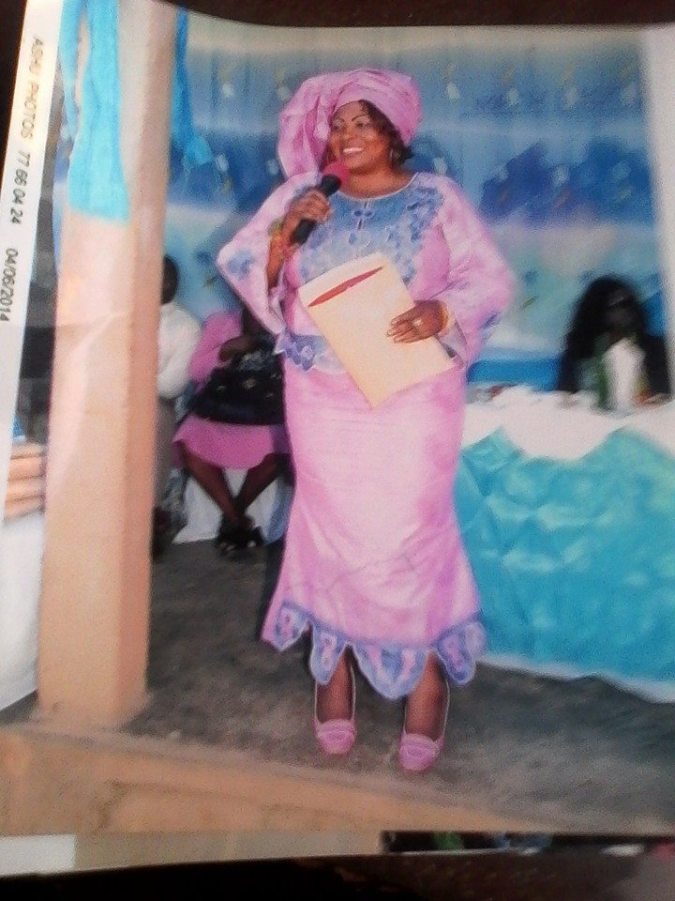“Since 2007 we have sent out over 4000 teachers”
-Principal: Achecknew Emmanuel
Achecknew Emmanuel is the Principal of Special Educational Need Teacher Training Institute SENTTI which was authorised to open since 2007. The establishment trains Grade One and Special Need Teachers. Achecknew Emmanuel is equally the Acting Principal for CISETTEP which is Cameroon Inclusive Education Teachers Training and Empowerment Programme. He is the Coordinator of the various schools which function in the domain of training teachers for Special Education. There is also a third school in Yaounde; IBES SENTTI at Carrefour Obili at Saint Francis Primary and Nursery School.

How did this initiative begin?
Since 2007 we have sent out over 4000 teachers. These include Grade I Teachers in Special Need Education and Inclusive Teachers. We did this till 2015 when the Minister of Secondary Education realised that we were doing very good work and decided to step in. He ordered that Special Need Teachers Training be taken out and made a separate school. By so doing, two schools were created. You have CISETTEP with campus in Bamenda and IBES SENTTI in Yaounde which is an Evening School to train Cameroon Inclusive Special Need Teachers. Teachers Grade I Schools that we have are just the same like other Grade I Schools across the country leading to the award of Grade I Certificates or what is referred to in French as CAPIEM. However the difference between our teachers and the others is that ours carry out studies in Sign Language and Braille Transcribing and by the time they go out, many of them are very proficient in the communication skills. That’s why when you go round, many of our students are found everywhere.
During graduations, employers usually rush to get some of them because of they are versatile. They are capable of accommodating pupils irrespective of their needs due to their inclusive training.

Achecknew Emmanuel
What is the focus of CISETTEP?
With the CISETTEP programme, we are out to recycle Grade One Teachers who did not undergo the Special Need Programme. That’s why the Ministry of Secondary Education created that school. They train teachers who will be able to accommodate children with special needs like those who are visually impaired, those living with hearing impairment, the physically challenged, the hyper active among others.Training has been going on well for Bamenda but for Yaounde people are still slowly getting to know that we are there. By this medium I wish to draw the attention of parents that there is also a branch of CISETTEP SENTTI in Yaounde known as IBES SENTTI which is an Evening School. Candidates who are based in Yaounde can go there.

You can find our graduates at the National Rehabilitation Center at Etougebe in Yaounde. You have Morning Star in Akum, the Treasure Center, the Bulu Blind Center in Buea among others. We also have candidates who came in from Chad.
Considering the Bilingual Linguistic Background of Cameroon what do you do to take care of extra linguistic needs?

This was specially taken care of at the time we were drawing the programme. French Language is considered a very important aspect of the training. We even bring in teachers from the Linguistic Center to help us so that candidates who leave here are also very proficient in the French and English Languages. That is why the Vice Principal of the school Simo Daniel is very bilingual.
What have been some of the challenges that you’ve had and how have you handled them?
Inclusive Education is still a new concept to many people are not usually certain about it. Secondly many of them come thinking that its just the ordinary fees that they pay in Secondary Schools. Considering that Inclusive Education is very expensive they are unable to pay. We can say that most students who come here go out without completing the fees. We are however happy that if they can go out and help the suffering of those in need then the proprietress Urwick Uginia will feel fulfilled since that’s one of the main objectives she had in mind when creating the institution. She has been putting in a lot to make the place work and has been running it at a loss.
Do you have any last Message?
We want to say that disability is not inability. Everybody has a degree of disability but this does not mean that with disability the person cannot function. With our help you can become much more functional with your disability and then contribute towards the development of your community. Disabled children are not as useless as we used to think. People used to lock up these children at home and took them for useless people. Times are changing with the coming to light of these new concepts. We are saying that parents, friends, relatives, mayors and those in authority should help bring out these children to us. We have a school for them. There is a cost but not as high as it should have been if you had to take these children to distant specialised institutions.
Les Ecoles Du Cameroun: Email: cameroonschools@hotmail.com/edevnewspaper@gmail.com/Tel: +237696896001/+237678401408/+237667169106



















